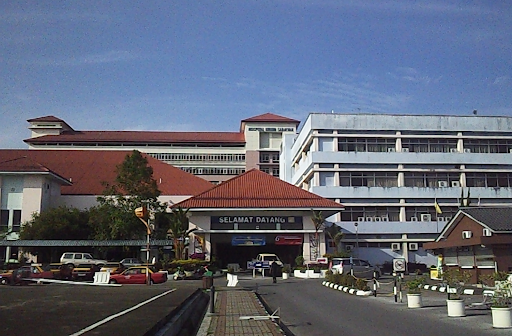KUALA LUMPUR, July 24 — Sarawak General Hospital (SGH) had a whopping 68 Covid-19 cases among staff, 54 of which involved hospital workers infecting their coworkers, the Ministry of Health (MOH) revealed.
Out of the 4,643 SGH staff screened, which yielded 68 confirmed coronavirus cases, aside from the 54 health worker cases, the remaining nine patients came from Person-Under-Investigation (PUI) or severe acute respiratory illness (SARI) cases; and the balance five cases were infected by the community.
MOH maintained that no coronavirus infection in the SGH cluster was caused by the handling of Covid-19 patients in wards or the intensive care unit (ICU).
Last April 29, an anonymous person, in a letter posted to The Malaysian Insight, called for SGH to be locked down, as the person claimed that the first few SGH health care workers to test positive had been exposed to the first Covid-19 victim, who died in Sarawak’s main public hospital located in Kuching at the end of March.
Another health care worker from SGH, who claimed to be working at the ground level, wrote to CodeBlue on April 30 about how “countless” health care workers at the MOH hospital had tested positive for Covid-19 and brought down at least 10 more co-workers due to allegedly haphazard testing and quarantine policies. The person alleged poor conditions in health workers’ quarantine centres, like fungus-infested rooms.
“Following the complaints made, MOH, through the Crisis Preparedness and Response Centre (CPRC), and the hospital service held a special meeting with the parties in SGH to find out the detailed situation,” Health Minister Dr Adham Baba told Bandar Kuching MP Dr Kelvin Yii (DAP) in a written parliamentary reply on 22 July.
“Next, some meeting sessions via video conferences were held between the Deputy Director-General of Health (Medical), Director of Medical Development, with the Director of Sarawak State Health, directors, and experts from the SGH.”
Dr Yii had asked the ministry to specify the status of the investigation that has been conducted at SGH regarding complaints raised by hospital employees on hospital policy that allegedly resulted in Covid-19 transmission among SGH staff.
Dr Adham explained that a special team was established at the MOH level consisting of a consultant specialising in infectious diseases, and two public health physicians. The team went to SGH to conduct investigations and assisted in managing Covid-19 cluster control activities among health workers at the government hospital.
MOH denied last April 30 allegations that the Covid-19 cluster at SGH, infecting 56 health care workers then, was caused by managing coronavirus patients.
According to MOH, more than half of the SGH cases were related to the biggest Covid-19 cluster in Kuching — a church gathering. Health director-general Dr Noor Hisham Abdullah also said then that 35 of the 56 SGH staff had been discharged from hospital after recovering from the coronavirus.
Dr Adham stated that monitoring activities in SGH were carried out continuously through various initiatives, such as official letter distribution, dissemination of the latest guidelines, and daily reporting to the CPRC.
He also listed the strict restraint and containment measures that were carried out in the SGH, such as:
- A more effective public health approach was carried out to break Covid-19 transmission;
- Cleaning and disinfection activities were carried out in the areas involved, as well as high-risk areas, according to MOH standard operating procedures;
- Mobilisation of staff from nearby hospitals and public health clinics;
- Social distancing measures, wearing of personal protective equipment (PPE), as well as strict monitoring in all public areas;
- Patients with low immune level were transferred to nearby facilities;
- Arrangement of accommodation for health personnel;
- Completed periodic screening at all high-risk places in the hospital.
“In addition, individual and group mental health services, activities and psychosocial support (MHPSS), including psychological first aid, were conducted,” Dr Adham added.
“Emotional support and counseling to health care workers were also provided through online services at the hospital and state level.”
It is unknown when the SGH cluster ended.








